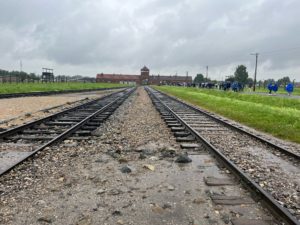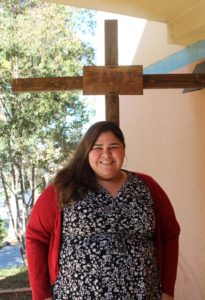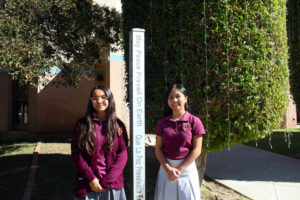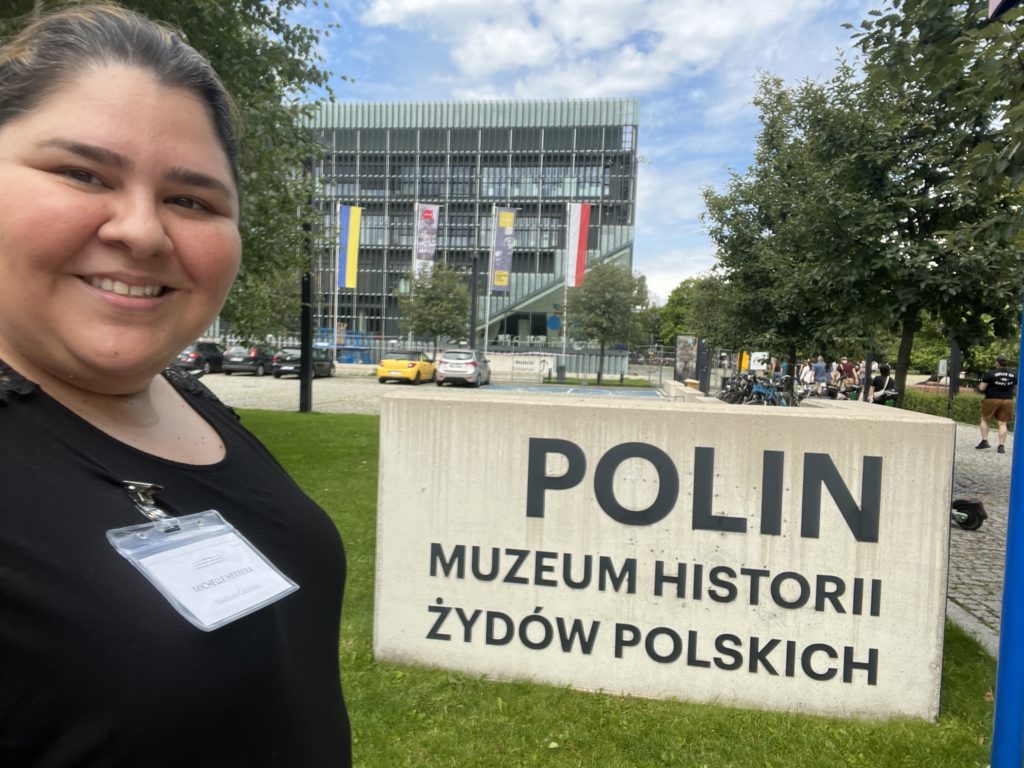Catholic school teacher Michelle Herrera never had a Jewish friend, never stepped inside a Jewish synagogue, and never learned much about the Jewish faith.
But after noticing a rise in antisemitism in recent years, Herrera thought it was time to better inform herself and her students. So she joined the Auschwitz Legacy Fellowship, a unique program that gives American teachers academic-focused tours of the Auschwitz-Birkenau Memorial and Museum in Poland. Herrera knew seeing the concentration and extermination camps was going to be difficult, but it was tougher than expected.
“That first night I prayed the most,” she said. “I wasn’t ready for the emotions that came up … nothing can prepare you for it.”
The Auschwitz Legacy Fellowship is a yearlong intensive education on the Holocaust, antisemitism and Auschwitz-Birkenau, the network of Nazi-run camps where more than 1 million people, mostly Jews, were murdered. The Auschwitz-Birkenau Memorial Foundation (ABMF) launched the initiative in 2022 so younger generations would be taught not only the history of the Holocaust but its social relevance today.
This year, the ABMF, with partners like Holocaust Museum LA, invited teachers from California to apply to the fully funded program. It includes in-person and online classes as well as a weeklong tour of historical sites in Poland. Herrera, who teaches theology at Ramona Convent Secondary School in Alhambra, was one of 20 educators chosen from Southern California and the only Catholic school teacher.
“I felt a certain responsibility with that,” Herrera said. “I thought about what this history teaches us about our faith and how do we enter the conversation.
“I wanted to receive what I was there for.”

Herrera visited Poland in 2016 for World Youth Day, but the mood of this trip was quite different. As soon as she arrived at Auschwitz-Birkenau, she felt a “heaviness” in the air. Rain and gray skies added to the gloominess. The fellows, accompanied by representatives like Sarah Klein from Holocaust Museum LA, toured prisoner barracks and what remains of the deadly gas chambers. Herrera had no words for the latter except to say she is now a “witness” to atrocity.
Especially chilling, she said, were the exhibits of personal items seized from prisoners — including shoes, eyeglasses, and even a collection of hair that had been removed to curb the spread of lice.
“Seeing the amount of hair that was shaved off people’s heads — that alone got me,” said Herrera. “I just had to walk out alone under my umbrella. I just needed a moment to gather myself.”
Although nothing could erase those cruelties from her mind, Herrera said she found solace in the courage shown by prisoners like St. Maximilian Kolbe. In 1941, the Catholic priest was arrested for hiding Jews from the Nazis, and while serving his sentence in Auschwitz-Birkenau, he willingly accepted another prisoner’s death sentence so that man could live. Decades later, Polish-born St. Pope John Paul II placed a paschal candle in St. Kolbe’s prison cell.
“That was cool to get to see with my own eyes,” Herrera said. “I didn’t know the candle was still there. I think I needed that in the midst of so much darkness and intensity.”
The Montebello native said even though the experience was deeply emotional, she never forgot why she was there: her students.
“My teacher hat was definitely on,” Herrera said. “I took notes, tried to put it all together for myself and think about how I’m going to teach this.”

After the tour, Auschwitz Legacy Fellows were given school lesson plans on how to explain the Nazis’ brutality and the antisemitism that led to it. Herrera takes on those difficult topics in her theology classes and allows her students to weigh in.
“That’s what stuck out to me, how things evolve over time,” said Iana Anikalumibao, a sophomore at Ramona. “(Bias) doesn’t just drop out of the sky.
“We should be spreading peace instead of blind hate.”
Herrera also shares with her students how imprisoned Jews secretly drew pictures, wrote poems, and documented what was happening to them. The students say hearing those accounts made the Holocaust more real.
“You could really connect with their stories,” said Madelyn Macias, a sophomore at Ramona. “It wasn’t just numbers you would read in a textbook. You could tell they were real people.”
Herrera, a product of Catholic schools herself, has been teaching for about five years at Ramona, an all-girls high school sponsored by the Sisters of the Holy Names of Jesus and Mary. She’s also the campus minister.
Ramona officials say by participating in the Auschwitz Legacy Fellowship, Herrera is opening her students’ eyes, and others’ too.
“Michelle is very committed to what she’s doing here, particularly in the theology department,” said Sister Kathleen Callaway, SNJM, president of Ramona. “She took the initiative to do this, to enrich her experience as a teacher. I also hope some of the other participants were enriched by having her Catholic perspective.”

Herrera and others involved with the Auschwitz Legacy Fellowship are closely following the ongoing conflict between Israel and Hamas militants in Gaza.
The October 7 attack on Israel and the retaliatory strikes in Gaza have given rise to hate crimes in the United States with both Jews and Muslims being targeted. Klein noted the current crisis and its fallout are exactly why the fellowship program exists.
“I want to make it clear that hatred for American Jews is never OK and blaming them for the activity of the Israeli government is an old anti-Jewish trope,” said Klein, senior manager of museum education at Holocaust Museum LA. “The Jewish people persevere, not only persevere but thrive. A lot of that, I think, comes from remembering who we are, our past, and then using that to create a better future so we can live in peace and safety.”
As an Auschwitz Legacy Fellow and a Catholic, Herrera feels called to help with that effort.
“I feel a change and a transition from the experience,” Herrera said. “As people of faith, we are called to be witnesses, allies, and advocates when we see hate rising, especially with our Jewish brothers and sisters with whom we share a common spiritual heritage.”
Herrera also wants to empower her students to act as “bridge builders” who can change the world for the better.
“I feel called to invest into this next generation of faith leaders and particularly here at Ramona, young female faith leaders,” said Herrera. “I really love my students.”

